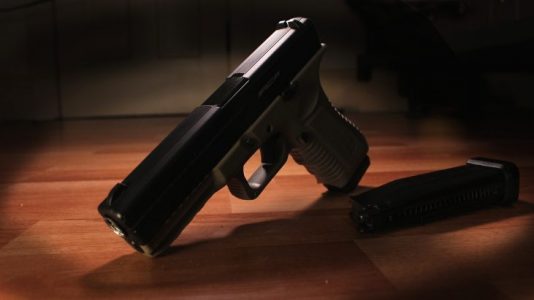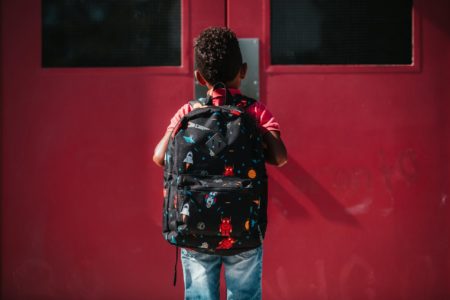Last Updated on July 25, 2022 by Michelle Ball
By Michelle Ball, Sacramento California Expulsion, Special Education, sports/CIF, College, Education and School Attorney/Lawyer for Students since 1995
Typically, any student who has a weapon, knife, or dangerous object at school will be placed up for expulsion or suspension. However, there is an odd, and unique exception written into the California Education Code, where maybe, sometimes, students may possess dangerous objects with written permission.
**Caution needs to be taken, however, as just because this code exists, the criminal codes for guns, knives or other dangerous objects may be different.

The Normal School Rule- Suspension or Expulsion
Under California Education Code 48900(b), students may be suspended or placed up for expulsion if they:
Possessed, sold, or otherwise furnished a firearm, knife, explosive, or other dangerous object…
This is not something surprising. If a student has a big metal bar, an airsoft gun, or provides a knife or sharp object to someone, the student can be suspended or expelled.
Dangerous objects, covers all sorts of things, including the obvious items. However, depending on their use, schools may allege they also include pencils, scissors, sticks, books, pillows, spit, urine, chemicals, and on and on, depending on how the object is used by a student.
Permission To Possess Guns, Knives, and Dangerous Objects?
Education Code 48900(b) provides an interesting exception for students, which will mean the difference between receiving a suspension or expulsion or none at all. It states that students may be suspended or expelled for these offenses unless…
… in the case of possession of an object of this type, the pupil had obtained written permission to possess the item from a certificated school employee, which is concurred in by the principal or the designee of the principal.
Is this realistic? I am not sure in this day and age whether schools still issue permissions to students or not. It may depend on the school.

How to Get an Exception
If a student wants an exception, such as for bringing an antique unloaded weapon to show and tell, they will have to seek that out from school staff. Staff could include a teacher or other school staff, plus the Principal.
When petitioning, the parent should bring pictures of the item, describe the purpose of its future visit to campus, and establish the safety steps and procedures for bringing it. Parents need to show due respect to school staff, who hold all the cards.
Will the object be brought in a locked box and only opened by a school police officer in the student’s class? Maybe. Will it be a kitchen knife for a cooking class, so the student will just have it in their bag in a sheath and give it to the teacher to keep?
It is likely that such an item would have to be checked into the office, and kept there before it is brought to the classroom, if the school allows it.
There is no guarantee that any school WILL give permission in any case.
Permission Has to Be in Writing
It is vital that if school permission is granted, it is in writing, and the student may prove they have permission. Anyone on campus who may encounter the object, should be informed that the student has legal permission, so there is no trouble or confusion.
Without proper written permission, as the law indicates, a student will likely be suspended or expelled.

Examples of When to Get Permission
Some examples where students should have gotten advanced permission are:
- A ten your old had an unloaded pistol to show to others
- A student using an antique firearm in a photo project outside campus, and brought it on campus
- A boy scout possessing a small pocket knife at school
Other situations which may occur, could be:
- A student needing a better knife for a cooking class
- A student needing metal pieces or other supplies for a metal or wood shop project
- A replica weapon for a student play, that is unloaded
- An art student needing special tools for class
- A student bringing donations for a school donation drive, which may include dangerous objects
- A special welding tool, needed by a student
WARNING: Criminal Laws are Different
The penal code (criminal law) does not appear to have the same exceptions for these items. So it is a bit risky and unpredictable what police would do to a student with items that may bring criminal charges if on campus, even if the student has written school permission.
As such, parents may want to coordinate with school or other law enforcement before having a student bring anything “dangerous” to school, particularly in today’s day and age.

Risks to Students Even with Permission
When carrying anything resembling a weapon, there is always a risk to the person possessing it, that its possession could be misconstrued.
A student with anything that resembles a weapon, is at risk that the object could be “threatening” if found in their belongings. Cops may act fast, maybe too fast, if they think a threat exists. Parents and students need to be ultra cautious.
Student attorney and advocate Michelle Ball defends students facing discipline across California. Being in Sacramento, Michelle may become involved throughout the state, in Merced, Roseville, Stockton, Elk Grove, Laguna, Napa, Vacaville, and other locations.
Originally published October 25, 2011




